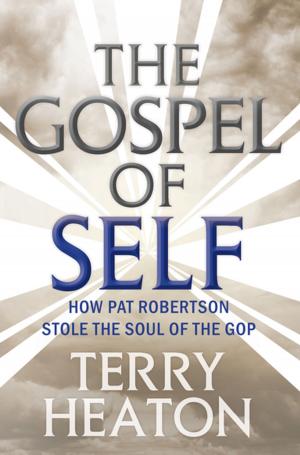The Last Days Omission
Nonfiction, Religion & Spirituality, Christianity, Missions & Missionary Work, Evangelism| Author: | G. Michael Epping | ISBN: | 9781476272528 |
| Publisher: | G. Michael Epping | Publication: | May 31, 2012 |
| Imprint: | Smashwords Edition | Language: | English |
| Author: | G. Michael Epping |
| ISBN: | 9781476272528 |
| Publisher: | G. Michael Epping |
| Publication: | May 31, 2012 |
| Imprint: | Smashwords Edition |
| Language: | English |
I do not write this book with the intention of criticizing the Western Church or its missionaries. I rather have written the text from a great love in my heart for all the brothers and sisters, who call themselves Christians or followers of Jesus. One important duty of the minister of God is to uplift and speak about the blessings of God. A more difficult task is to reveal and speak about any error that has developed in the Church, which is in need of correction. Should not this second responsibility be received with as much fervor as the first? Too often, not only the members of the congregation, but also the church leaders, do not want to hear anything that borders on correction of current practices and doctrines in either the local assembly or denomination. Too often, such spokesmen are labeled as critics, troublemakers, or false teachers, who come to divide or bring strife into the church. However, is this not what both Jesus and apostles like Paul did, when error had crept into the house of God? Did not Jesus call the Pharisees a den of vipers, and the blind leading the blind? Did not the members of the Sanhedrin hate Him and plot to kill Him for what they saw as high treason? Did Paul not later rebuke and correct the very churches that he had earlier pioneered and planted? And most important, was not this correction offered out of a genuine love for the saints of God? Is it the duty of the man of God to not only be sent out and establish new churches, but also to offer correction and rebuke in these same churches, when they have drifted away from the truth of Scripture? Do we not have a great need today for a minister (whether he goes by the name of apostle, prophet, evangelist, pastor, teacher, or just plain reverend) to not only bless and build up the people of God, but also to correct them when they have fallen into serious error? Yet too often, church members bristle and flare up, when the man of God comes in and rebukes them about serious error that has crept into the local assembly.
This book is written from such a position, with the specific intention of bringing an awareness of a serious error, which has infiltrated the Church. This error is widespread and crosses over denominational and other religious lines of authority. Has not the Great Commission that is a direct commandment of Jesus been turned into a Last Days Omission, and treated as an undesirable option of the Bible? The present book has been written with the primary purpose of answering this extremely important question. In Chapter 1, we begin with what the Bible tells us about the initial formation and later expansion of the church. Then, the Great Commission as set forth by Jesus Christ, will be examined in Chapter 2. After this basic groundwork has been laid, we will proceed to investigate some of the problems that have occurred from the practice of the Last Days Omission. Then, towards the end of the book, an antidote will be presented for this modern-day dilemma.
I do not write this book with the intention of criticizing the Western Church or its missionaries. I rather have written the text from a great love in my heart for all the brothers and sisters, who call themselves Christians or followers of Jesus. One important duty of the minister of God is to uplift and speak about the blessings of God. A more difficult task is to reveal and speak about any error that has developed in the Church, which is in need of correction. Should not this second responsibility be received with as much fervor as the first? Too often, not only the members of the congregation, but also the church leaders, do not want to hear anything that borders on correction of current practices and doctrines in either the local assembly or denomination. Too often, such spokesmen are labeled as critics, troublemakers, or false teachers, who come to divide or bring strife into the church. However, is this not what both Jesus and apostles like Paul did, when error had crept into the house of God? Did not Jesus call the Pharisees a den of vipers, and the blind leading the blind? Did not the members of the Sanhedrin hate Him and plot to kill Him for what they saw as high treason? Did Paul not later rebuke and correct the very churches that he had earlier pioneered and planted? And most important, was not this correction offered out of a genuine love for the saints of God? Is it the duty of the man of God to not only be sent out and establish new churches, but also to offer correction and rebuke in these same churches, when they have drifted away from the truth of Scripture? Do we not have a great need today for a minister (whether he goes by the name of apostle, prophet, evangelist, pastor, teacher, or just plain reverend) to not only bless and build up the people of God, but also to correct them when they have fallen into serious error? Yet too often, church members bristle and flare up, when the man of God comes in and rebukes them about serious error that has crept into the local assembly.
This book is written from such a position, with the specific intention of bringing an awareness of a serious error, which has infiltrated the Church. This error is widespread and crosses over denominational and other religious lines of authority. Has not the Great Commission that is a direct commandment of Jesus been turned into a Last Days Omission, and treated as an undesirable option of the Bible? The present book has been written with the primary purpose of answering this extremely important question. In Chapter 1, we begin with what the Bible tells us about the initial formation and later expansion of the church. Then, the Great Commission as set forth by Jesus Christ, will be examined in Chapter 2. After this basic groundwork has been laid, we will proceed to investigate some of the problems that have occurred from the practice of the Last Days Omission. Then, towards the end of the book, an antidote will be presented for this modern-day dilemma.















